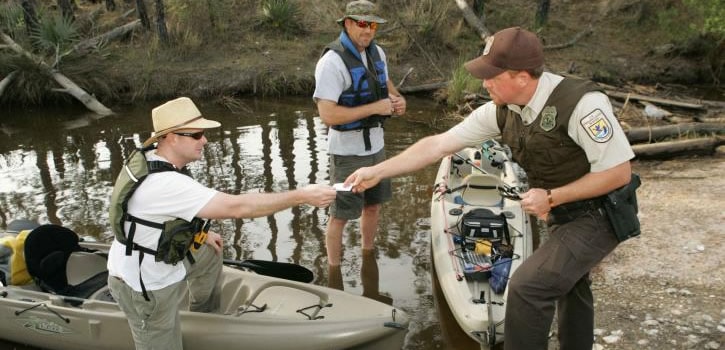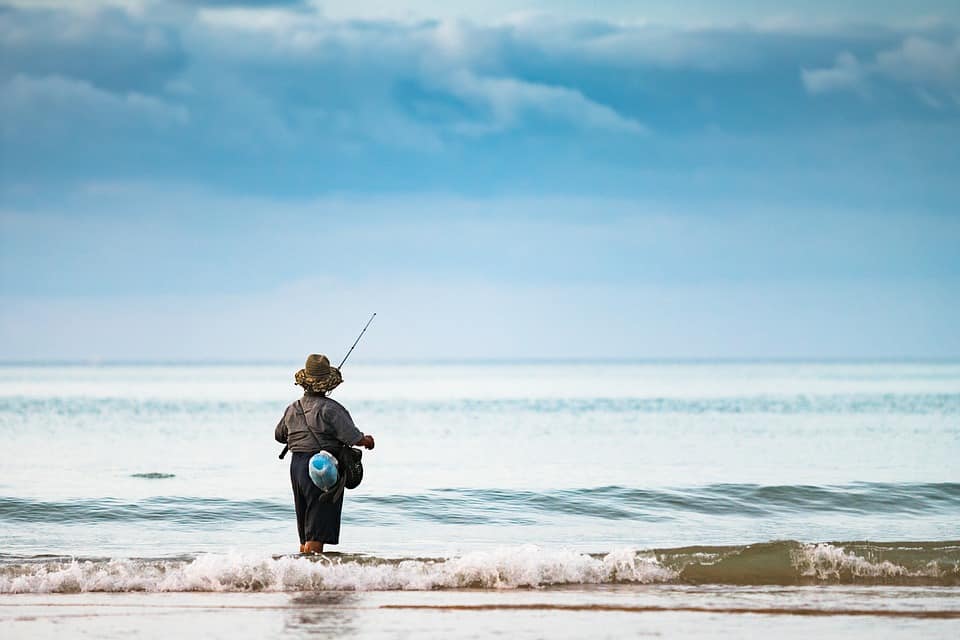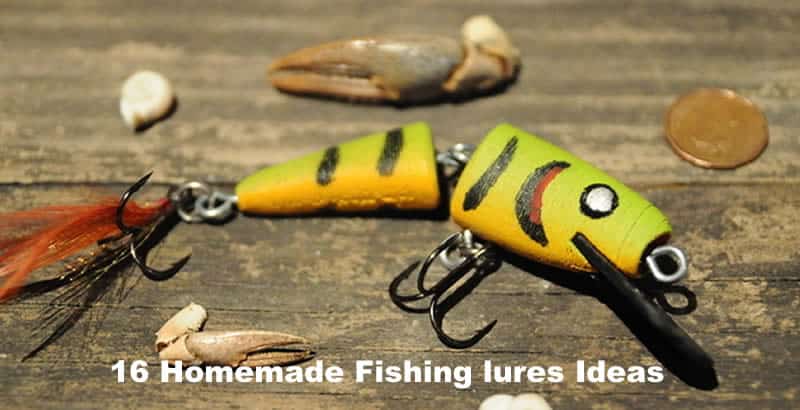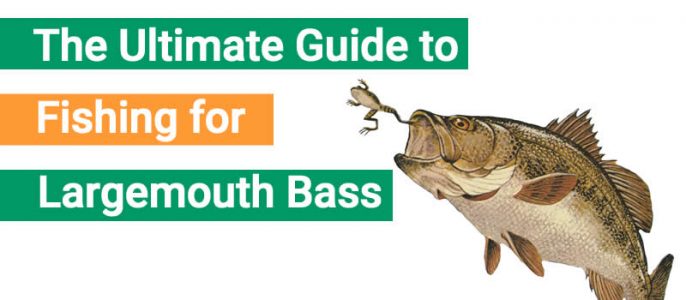If you buy via a link on this page, we may receive a commission, at no extra cost to you.Learn more
There are several things that you must take care of before starting fishing. First, you need a rod, reel, line, hooks, lures, sinkers, and other tackle. Then, it is time to search for your next fishing spot, and that’s all, right? Sadly, this is not true. There is still one more thing that you need before starting to cast your rod. And that is a fishing license or permit.

Many anglers, especially beginners, aren’t aware that they must carry a valid fishing license at all times before being allowed to fish on most waters. So, what happens if you get caught fishing without one? It depends on several things. For example, sometimes you can get away with merely a warning. But most times, you have to pay a fee according to your transgression.
The amount you have to pay, as well as other penalties, change from state to state. Thus, make sure to get acquainted with the local legislation before your trip.
There are some exceptions to the law. For example, there are certain places where you don’t need to carry a fishing license. Similarly, some states have what is known as free fishing days. You don’t need a permit in this case either. In the following lines, we will talk about each one of the exceptions, as well as what could happen if you ever get caught fishing without a license.
Consequences of Fishing Without a License
Many people think that they can fish without a license and get away with it. While sometimes they do most other times they don’t. Authorities are constantly supervising all bodies of water. And are always looking for anglers fishing without a permit. Thus, it is almost impossible to avoid them.
Now, what will happen to you depends on three things: The officer who caught you, the state where you are fishing, and whether or not you have any previous offenses.
In the best-case scenario, the officer will give you a warning, and you will have to leave the water. You won’t be able to return until you have a valid fishing license. However, this doesn’t happen too often. Mainly because buying a fishing license is so easy that there is no excuse not to have one. And the classic I did not know excuse won’t help you either.
So, in most cases, if this is your first offense, you will get a small fine and a ticket. The amount you must pay changes depending on the state, but usually sits around 50 dollars plus the value of a 24-hour license. Still, the amount will increase if you have any fish in your possession. So, make sure to have a valid fishing license before you start fishing. Besides, it will be a lot much cheaper to purchase one than pay the fine.
Usually, you must pay the penalty in the next 30 days. If you fail to comply, you will be committing another transgression. Thus, another fine or even some jail time. Keep in mind that, by paying, you are admitting that you are guilty and renouncing your right to a hearing. So, if you don’t believe that you did something wrong, you can always try to defend yourself in the local courthouse.
Now, the fine will increase if this isn’t your first time, and you can lose the right to fish for some time. Therefore, don’t even try fishing without a license, as the consequences can be severe.
Why is Fishing Without a License Illegal?
According to the conservation act of 1997, you must purchase a license before being able to fish. The decision was made to control and lower the impact that fishing has on fish numbers. This way, many generations to come can enjoy this ancient hobby. So, the short answer is that it is illegal to fish without a license because the law says so.
Besides, the wildlife department uses the money raised from fishing licenses to pay for the maintenance expenses of all fisheries. So, see the license fee as a contribution to the greater good, rather than an obligation.
Who Doesn’t Need a Fishing License?
Some people may not need to carry a license when fishing. Bear in mind that this is not quite common. Thus, double-check whether or not you are part of such selected groups. Of course, this changes from state to state.
For instance, all anglers below 16 years old (17 in some states), don’t need to purchase a license when fishing. The same applies to any angler over 65 years old. Of course, you must carry a valid ID with you, so the officer can verify your age.
Veterans or military personnel usually don’t require to have a license when fishing in their home county. But you do need one for fishing elsewhere. Additionally, people with disabilities or those who fish as part of therapy are exempt as well. However, you have to provide proof that you are, indeed, a veteran or that you suffer some kind of disability.
And the last group of people that doesn’t need a license are those fishing in a family homestead.
You still have to follow all the other fishing regulations, though. For example, you can’t exceed the daily bag limit, and you must release all fishes that don’t meet the minimum length criteria.
Where to Go Fishing Without a License?
As we mentioned before, some states offer free fishing days. You don’t need a fishing permit to fish on these dates. And you go fishing in any place you wish. Moreover, you don’t need a license to fish on certain piers. Make sure to check such dates and places in the local wildlife department to avoid any awkward situations.
Again, you must obey all other fishing regulations.
Types of Fishing Licenses
You may not know this, but there are different types of licenses available. For example, you have freshwater, saltwater, combined, recreational, and commercial fishing licenses. It goes without saying, but you can’t fish in the ocean with a freshwater fishing permit. Therefore, go for a combined license if you wish to fish on both types of water.
The fact of having a license, but not the right one, won’t save you. You will still get a fine and a ticket. Hence, make sure that you have a valid fishing license before casting your rod.
Keep an eye out for the expiration date of your permit. Having an expired fishing license is as good as not having one at all. Many states sell a wide variety of licenses with different expiration dates. So, you can choose the one that best suits your needs.
For example, a 24-hour permit is the best option if you enjoy the occasional fishing trip. Or, you can go for a yearly license if you are an avid angler.
Buying a Fishing License
You must purchase a fishing license if you don’t belong to any of the aforementioned groups. Fortunately, this is an extremely easy task, as they are widely available in sports stores, wildlife departments, online retailers, and even Walmart! Yes, you read that right, you can get a brand-new fishing license in the nearest Walmart. Click here if you wish to know more.
Alternatively, you can purchase a license on-site, as many reservoir stores sell fishing licenses. In fact, you have to show it before you start fishing. Thus, there is no way to fish without a license in such places.
Fishing Without a License? Not the Greatest Idea
The answer should be crystal clear by now. Fishing without a license is not the best idea in the world. In the best-case scenario, you will only get a warning. Sadly, this is not too common.
Most times, you will get a fine equivalent to 50 dollars plus the price of a fishing license and a ticket. But the amount can increase if this isn’t your first time, or if you manage to catch something before being caught.
Some people don’t need to carry a license when fishing. Thus, they don’t have to worry about these consequences. For instance, neither veterans nor people suffering from disabilities need a fishing license for being allowed to fish. The same goes for any angler with less than 16 or over 65 years old. Other exceptions to the law are anglers fishing on a family property and free fishing days.
Still, all anglers must obey the remaining fishing regulations, such as daily bag limits, minimum size, and season bands. Make sure to fully understand the local regulations and double-check whether you need a license or not, as this is the only way to enjoy a trouble-free fishing trip.




